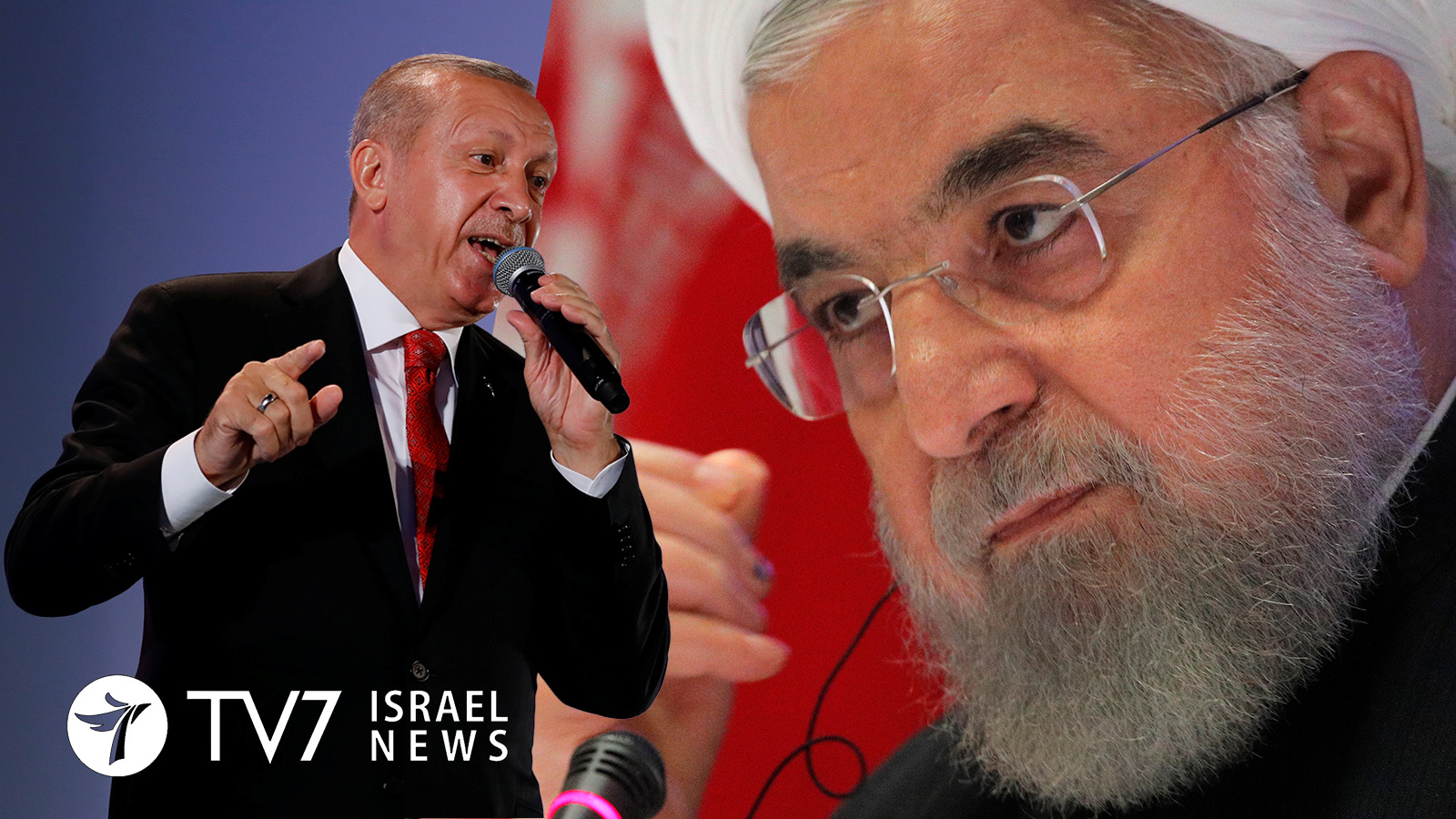Turkish President Tayyip Erdoğan raised Iran’s ire in recent days during a state visit to Azerbaijan, and accused Ankara of meddling in Tehran’s affairs.
Erdoğan was in the Azeri capital to review a military parade marking Azerbaijan’s victory over Armenia in a war over Nagorno-Karabakh – internationally zas part of Azerbaijan but populated and until recently under the full control of ethnic Armenians after a bloody war in the 1990s which saw them seize other outlying regions belonging to Azerbaijan too.
During the six weeks of fighting, Turkey helped its ethnic Turkic ally Azerbaijan achieve major territorial gains against the Armenians, whom Ankara accused or having occupied Azeri territories.
A Kremlin-brokered ceasefire ended the Nagorno-Karabakh conflict by locking in the Azeri gains, as well as the deployment of Russian peacekeepers to the region. In a separate deal, Moscow and Ankara also agreed to jointly monitor the truce.
While he was in Baku, Erdoğan recited an Azeri-Iranian poem about the division of Azerbaijan’s territory between Russia and Iran in the 19th century.
Tehran was immediately incensed over the remarks, out of apparent concern they could fan separatist tendencies among Iran’s Azeri minority.
The northwest Iranian region of Azerbaijan borders on the independent state of Azerbaijan, a former Soviet Republic. Azeris speak a language very similar to Turkish, but most observe Shi’ite Islam – which is the same as Iran’s official state religion.
“The Turkish ambassador was informed that the era of territorial claims and expansionist empires is over,” Iran’s Foreign Ministry said on its website, stressing that, “Iran does not allow anyone to meddle in its territorial integrity.”
Earlier, Iranian Foreign Minister Mohammad Javad Zarif posted on Twitter: “President Erdoğan was not informed that what he ill-recited in Baku refers to the forcible separation of areas…from (the) Iranian motherland.”
“NO ONE can talk about OUR beloved Azerbaijan,” Zarif fumed.
Both nations have summoned the ambassadors of the other to their respective foreign ministries over the incident.
Other key statements by Erdoğan amid his visit included a declaration that Turkey would play “an important role” in the reconstruction of areas taken by Azerbaijan in the conflict, saying he and Azeri President Ilham Aliyev had agreed to move on this within a year.
Speaking alongside Azeri counterpart, Erdoğan said his nation doesn’t “hold any grudge against Armenian people – our problem is with the Armenian leadership,” and renewed his call for a change of the Yerevan government.
Turkey could also open its borders with Armenia if it takes “positive steps” to contribute to regional peace, Erdoğan said, including participation in a six-country regional cooperation platform in the Caucasus – with Turkey, Russia, Iran, Azerbaijan and Georgia – a forum which he said has also been embraced by Russian President Vladimir Putin.
Azeri President Aliyev stated that “If the Armenian leadership draws the right consequences from the war, drop their unfounded claims and look into the future, they also have a place in this platform. We are open to this.”
Turkey and Armenia signed a landmark accord in 2009 to restore ties and open their borders after a century of hostility stemming from the genocide perpetrated on the Armenian people by Ottoman forces during World War I. The deal was never ratified by either government, however, and relations between the two countries have remained strained.
Aboard his flight home, Erdoğan told reporters that the regional platform would provide a “win-win” opportunity for all parties, and repeated that Russian President Putin was “keen” on the idea.
“If Armenia joins this process and takes positive steps, a new page can be turned in Turkey-Armenia ties too. As long as new opportunities come up, there is no doubt that Armenia’s gains here will seriously increase too. Armenia stands to win the most from this,” Erdoğan was cited as saying.
